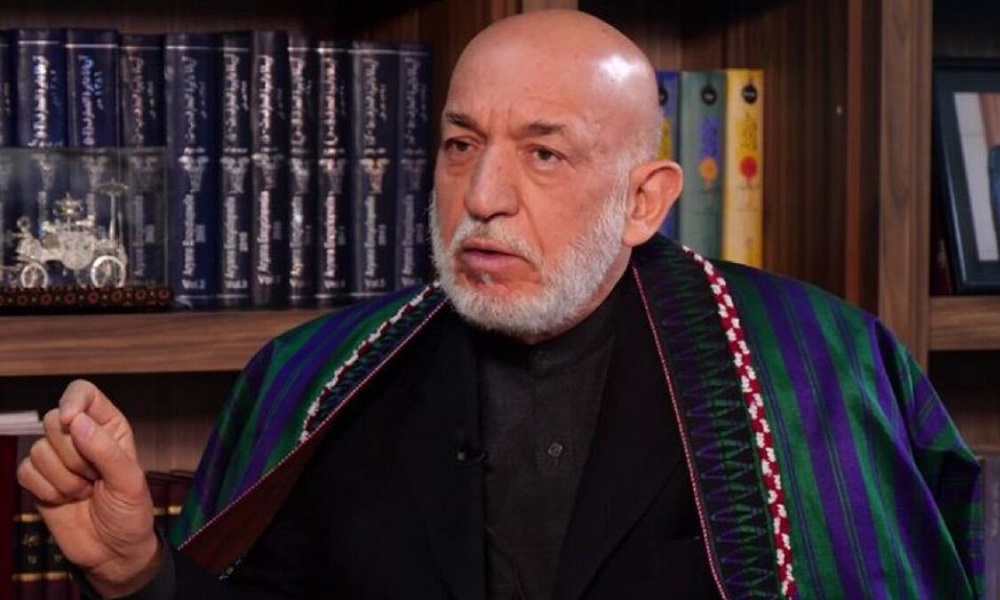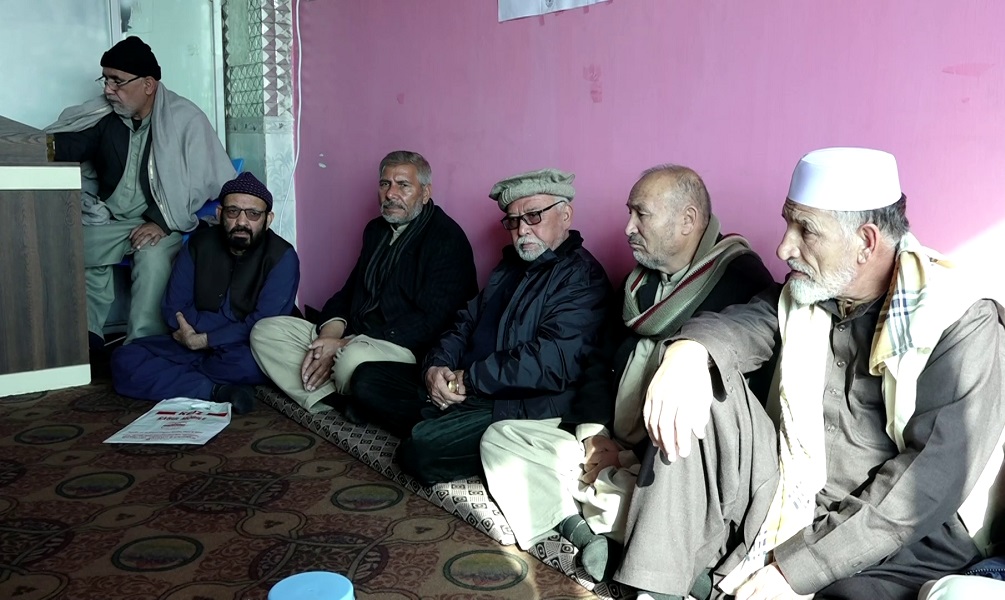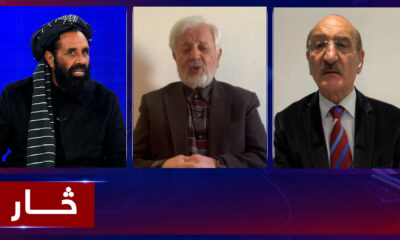Latest News
SCO foreign ministers emphasized the need for bilateral ties with Afghanistan

The meeting of foreign ministers of the Shanghai Cooperation Organization (SCO) was hosted by Vladimir Narov, minister of Foreign Affairs of Uzbekistan, and attended by the foreign ministers of Russia, Kazakhstan, Tajikistan, Kyrgyzstan, India and Pakistan, and Zhang Ming, the Secretary General of the SCO, on Friday in Tashkent.
The political and human situation as well as how to connect and grow Afghanistan's trade and economic cooperation have been the focus of discussion among the foreign ministers of Shanghai summit.
However, this is the first Shanghai meeting after the political changes in Afghanistan.
Pakistan's Foreign Minister Bilawal Bhutto Zardari considers the Shanghai meeting as a good opportunity to discuss the strengthening of trade and economic cooperation and Afghanistan's connection with regional countries.
“With the new political developments that have emerged in Afghanistan, there is a need for all the neighboring countries of Afghanistan and the countries of the region to work together for sustainable stability in Afghanistan,” said Zardari.
He has also emphasized the need to expand cooperation between Kabul and Islamabad and has expressed hope for the development of communications, including economic relations between the two neighboring countries.
At the same time, the Russian Foreign Minister Sergei Lavrov said that his country's position is close to that of other members of Shanghai and Moscow is working with the new leadership of this country based on the current realities in Afghanistan.
“We have a very close position with our Uzbek friends in terms of the need to know the current realities in Afghanistan and we work with the current leadership based on these realities,” said Lavrov.
In the meantime, Amir Khan Muttaqi, acting minister of Foreign Affairs, said in an exclusive interview with WION that the major problems faced by the Islamic Emirate in the past months are now being resolved and Afghanistan's relations with neighboring countries and the region are improving.
“We have dealt with many challenges over the years, and most of them have been addressed. The law-and-order situations in Afghanistan have improved now, and the foundations of the country’s economy are also improving day by day. Political ties with neighboring, regional countries and the international community are improving gradually. So, the major challenges that we’re facing have been reframed to a greater extent,” Muttaqi said.
He also further added: “However, Afghanistan has come out of a four-decade-long conflict. There are still many challenges, including the economy, and we’re hopeful of finding a solution to the remaining challenges too and I’m optimistic that with the level of progress that we’re making, we will be able to deal with the remaining challenges and find a good future.”
The foreign ministers of the SCO, in addition to the issues of strengthening trade and economic relations and connecting more member countries, at the end of their two-day meeting, also asked the United States to release the frozen assets of the Central Bank of Afghanistan.
The members of Shanghai also emphasized on the observance of human rights, and women's work and education in Afghanistan, and stressed the need for reforms to make the government more inclusive in Afghanistan.
Meanwhile, the Islamic Emirate considers itself committed to respecting the rights of all citizens within the framework of Islamic values and has always emphasized that it is committed to bringing reforms in the government.
Latest News
G7 envoys urge national dialogue for lasting stability in Afghanistan

Special Representatives of the Group of Seven (G7), including the European Union, have emphasized the importance of a national dialogue for achieving long-term stability in Afghanistan.
Following a meeting on Afghanistan in Geneva, Switzerland, G7 special envoys issued a joint statement calling for the restoration of women's rights and urging the Islamic Emirate to fight terrorism.
The statement reads: "Achieving sustainable peace and stability requires credible governance that represents all segments of Afghan society."
The representatives also expressed concern over the IEA’s decision to ban girls from attending medical institutes, warning that it will have devastating consequences for the citizens, particularly mothers and their infants.
The statement described this ban as unacceptable and called on the Afghan authorities to lift it immediately.
Earlier, countries and international organizations had called for the removal of restrictions on the education and employment of women and girls, emphasizing the need for a national dialogue.
In response to these concerns, IEA has repeatedly stated that it will not allow interference in the internal affairs of the country.
The G7 special envoys also expressed their concern about the recent terrorist attacks in Kabul and the surrounding region, warning that terrorism remains a serious threat to Afghanistan's security. They confirmed the actions of the IEA against Daesh but stressed the need for more decisive measures.
Latest News
Afghanistan’s bright future lies in educating girls: Karzai

Hamid Karzai, the former president of Afghanistan, says the demand of Afghan girls for the reopening of schools and universities is their fundamental right and adds that Afghanistan cannot have a bright future without ensuring access to education for girls.
In a statement on his X (formerly Twitter) account, Karzai said: "The demand and voice of our country’s girls for education and knowledge is a rightful one and crucial for a prosperous Afghanistan."
He further emphasized, "Empowering the youth—both girls and boys—is the only way to achieve self-reliance, break the cycle of poverty, and drive the development and prosperity of society."
Karzai underscored that education is vital for Afghanistan’s growth and development, expressing hope that the doors of schools and universities for girls will be reopened as soon as possible.
Latest News
IEA to set up special courts to address pensions

Mawlawi Hebatullah Akhundzada, the supreme leader of the Islamic Emirate of Afghanistan (IEA), has issued a decree to establish special courts to address pensions, Bakhtar news agency reported on Saturday.
According to the decree, the courts must confirm and process pensions in accordance with Sharia and law.
Pensioners have repeatedly voiced concern over delay in payment, saying that their financial challenges are growing.
Earlier this year, IEA's supreme leader banned money being deducted from salaries of government employees for pensions.
He also requested information on the tenure of employees and the total amount deducted from salaries for pensions.
-

 Sport5 days ago
Sport5 days agoLanka T10: All three matches abandoned due to rain
-

 Latest News5 days ago
Latest News5 days agoIndia hoping to import coal and marble from Afghanistan
-

 Sport4 days ago
Sport4 days agoZimbabwe’s opening ODI against Afghanistan abandoned
-

 Latest News5 days ago
Latest News5 days agoFuel prices rise in Herat as winter approaches
-

 Latest News5 days ago
Latest News5 days agoJapan announces $27.5 million aid package to Afghanistan
-

 Latest News3 days ago
Latest News3 days agoTwo horror accidents on Kabul-Kandahar highway leave 52 dead
-

 Latest News1 day ago
Latest News1 day agoAfghan men must stand with women to support viable future of country: US envoy
-

 World3 days ago
World3 days agoNorth Korean troops suffer 100 deaths, struggling in drone warfare, South Korea says






















